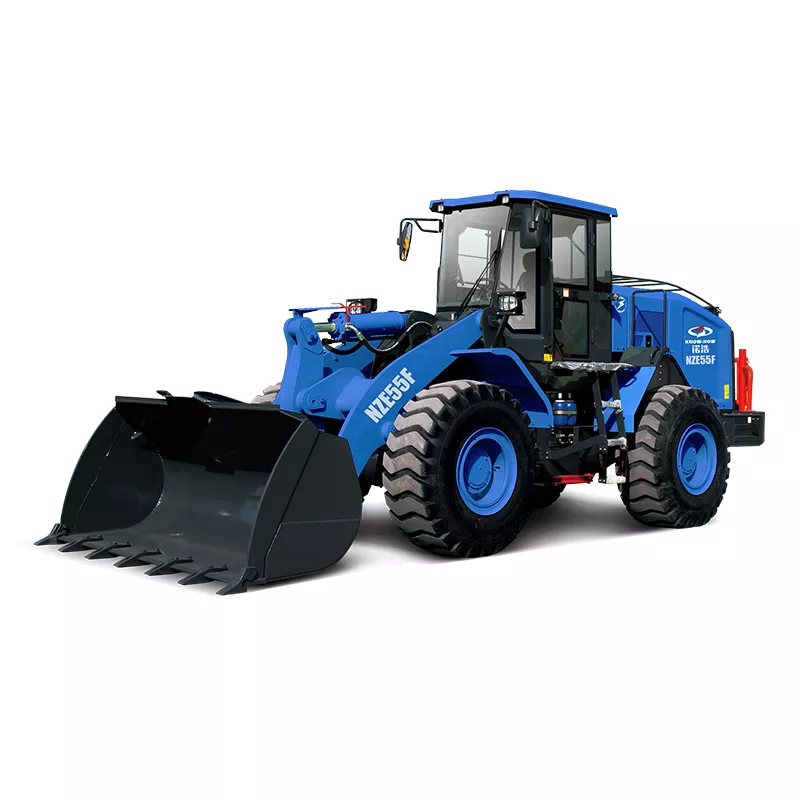Choosing the Right Battery Capacity for an Electric Wheel Loader in a Construction Project
In the realm of construction projects, selecting the appropriate battery capacity for an electric wheel loader is crucial for efficiency and productivity. Follow these step-by-step guidelines to make an informed decision.

Assess the Workload Requirements
Understand the Operational Needs
Begin by comprehending the specific requirements of your construction project. Analyze the workload, considering factors such as load capacity, distance traveled, and the intensity of usage. This foundational understanding will guide your battery capacity choice.
Evaluate Load Characteristics
Examine the types of Loaders will handle. Different loads require varied energy levels. If the project involves heavy materials or frequent lifting, opt for a higher battery capacity to ensure sustained performance.
Consider Environmental Factors
Examine Operating Conditions
Take into account the environmental conditions the electric wheel loader will face. Factors like temperature extremes, terrain ruggedness, and dust levels can impact battery performance. Choose a battery with specifications suitable for the anticipated conditions.
Review Charging Infrastructure
Evaluate the availability and compatibility of charging infrastructure at the construction site. Ensure that the chosen battery can be efficiently charged with the existing facilities, or plan for necessary upgrades if required.
Assess Battery Technology
Research Battery Technologies
Explore various battery technologies available in the market. Lithium-ion batteries are commonly used for electric vehicles due to their high energy density and long lifespan. Evaluate other emerging technologies to ensure you choose the most suitable option for your project.
Compare Energy-to-Weight Ratios
Compare the energy-to-weight ratios of different battery options. A higher ratio indicates a more energy-dense battery, which can contribute to longer operating times between charges. Factor in the weight of the battery itself, as it affects the overall efficiency of the wheel loader.
Consider Total Cost of Ownership
Evaluate Initial Costs
Consider the upfront costs associated with acquiring the electric wheel loader and the chosen battery. While higher-capacity batteries may have a greater initial cost, assess whether the long-term benefits, such as reduced charging frequency and increased lifespan, outweigh the initial investment.
Assess Maintenance Costs
Examine the maintenance requirements and associated costs for each battery type. Some batteries may require less maintenance, leading to reduced downtime and overall lower operational expenses.
Finalize the Decision
Seek Expert Advice
Consult with experts or manufacturers in the field of electric wheel loaders and batteries. Their insights can provide valuable guidance based on your specific project requirements.
Make an Informed Decision
Synthesize all gathered information and make an informed decision on the appropriate battery capacity for your electric wheel loader. Consider a balance between workload demands, environmental conditions, battery technology, and total cost of ownership to ensure optimal performance throughout the construction project.
Conclusion
Choosing the right battery capacity for an electric wheel loader in a construction project involves a meticulous process of evaluation and consideration. By understanding workload requirements, environmental factors, battery technologies, and total cost of ownership, you can make an informed decision that aligns with project goals. Implementing the decision involves integrating advanced management systems, providing operator training, monitoring performance, and adapting to changing project dynamics. Through these steps, you ensure the efficient and sustainable operation of the electric wheel loader, contributing to the overall success of your construction project.
225
0
0

Comments
All Comments (0)